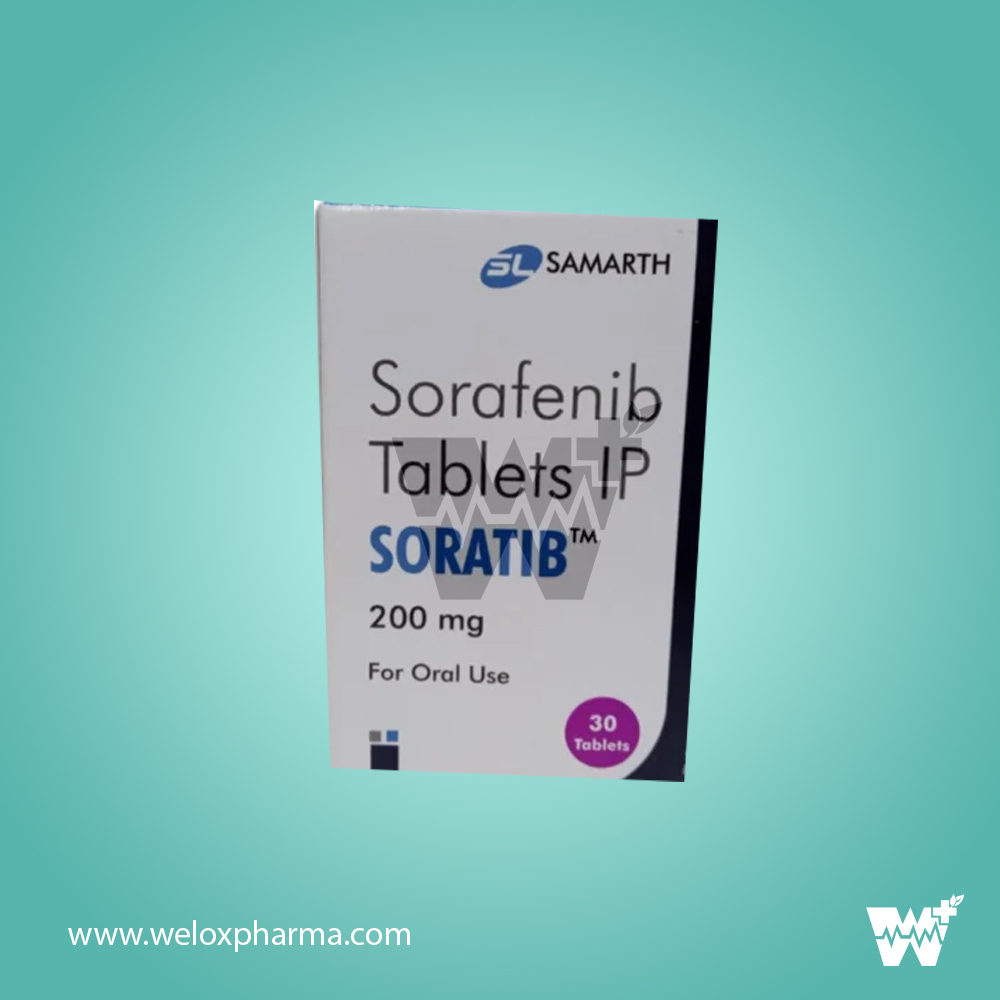



Introduction to Soratib 200mg Tablet:
Navigating Cancer Treatment Soratib 200mg Tablet, fortified with Sorafenib 200mg, emerges as a formidable ally in the battle against renal cell carcinoma (kidney cancer), hepatocellular carcinoma (hepatic cancer), and thyroid cancer. Tailored for adult use, this medication stands as a beacon of hope in the realm of oncology.
Decoding Soratib 200mg Tablet's Benefits: A Multifaceted Shield Against Cancer
1. Renal Cell Carcinoma Treatment:
Soratib 200mg Tablet unfolds its efficacy in addressing renal cell carcinoma, a prevalent form of kidney cancer in adults. Associated with factors such as obesity, cigarette smoking, polycystic kidney disease, and certain genetic conditions, this cancer manifests through symptoms like blood in urine, appetite loss, weight loss, fatigue, and fever.
2. Hepatocellular Carcinoma Combat:
Also recognized as malignant hepatoma, hepatocellular carcinoma represents a common liver cancer. Prevalent in individuals with chronic liver diseases like cirrhosis, hepatitis B or C, this cancer exhibits symptoms including weight loss, inflamed liver, loss of appetite, stomach pain, and jaundice.
3. Thyroid Cancer Management:
Soratib 200mg Tablet extends its therapeutic embrace to thyroid cancer, arising from abnormal cell growth in the thyroid gland. Indicators of thyroid cancer encompass a lump on the neck, voice changes, neck and throat pain, inflamed neck lymph nodes, and swallowing difficulties.
Unveiling Soratib 200mg Tablet's Mechanism of Action:
Orchestrating Cancer InhibitionSoratib 200mg Tablet, housing Sorafenib 200mg, operates as an anti-cancer medication and tyrosine kinase inhibitor. The mechanism involves targeting various tyrosine kinase proteins on surface receptors and intracellular structures, including VEGF receptors, PDGF receptor, FGF receptor, kit cytokine receptor, IL 2 receptor, lymphocyte tyrosine kinase receptor, and transmembrane tyrosine kinase receptor. By inhibiting angiogenesis signals and reducing tumor size through starvation, Sorafenib enhances apoptosis function, contributing to cancer suppression.